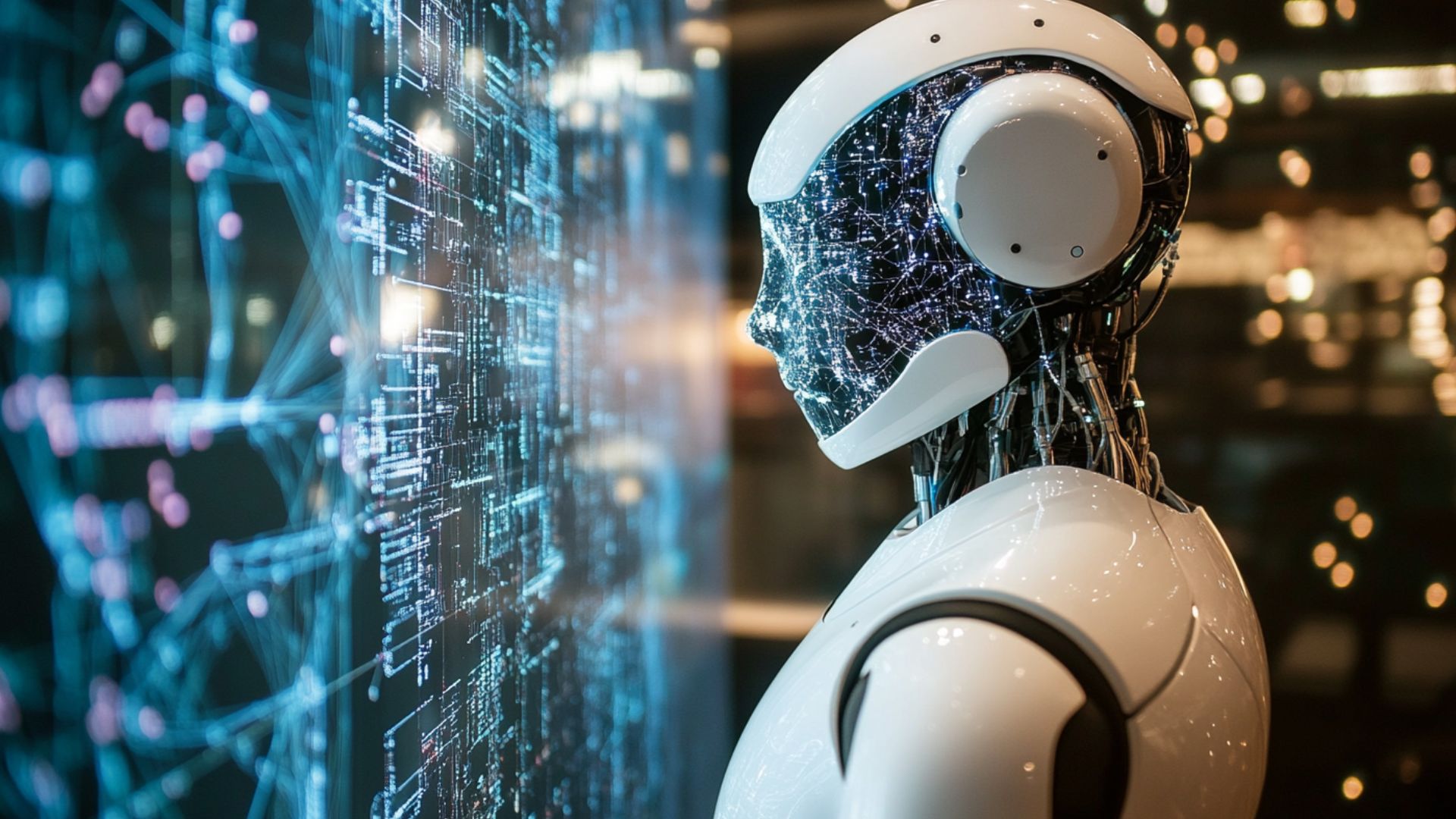Unveiling the Role of AI in Transforming Social Media Dynamics

Social networks have become an integral part of our daily lives. On these platforms, we communicate, share, and receive information. But things are changing rapidly with Artificial Intelligence (AI). This technology is now playing a huge role in social media.
AI is changing how we use these platforms and how they work. It influences what we see, how we interact, and even how we think. And even in social media marketing, AI is revolutionizing interactions.
This article will examine what AI is in social media and how it shapes social media. Let's examine the pros and cons of these changes. AI can make our online experience better in many ways. It can show us more of what we like and less of what we don't like. But it also raises concerns about privacy and manipulation. Get ready to learn how AI is changing the social media world we know.
How AI Powers Personalization and User Experience on Social Media
AI algorithms analyze user data to create personalized feeds and suggestions. These algorithms consider browsing history, likes, shares, and comments. They tailor content specifically to individual preferences. AI ensures that the content displayed is relevant and engaging. It continuously learns from user interactions. This enhances user satisfaction and increases the time users spend on platforms.
Social media and AI tools predict and improve user interactions for better engagement rates. They utilize machine learning to understand user behavior and preferences. It enables platforms to suggest more engaging content and interactive features. For example, AI-driven chatbots provide instant customer support. Sentiment analysis tools monitor user feedback to improve brand interactions. Let's look at several examples of AI in social media:
- Recommendation Algorithms: AI suggests content, friends, and groups based on user activity.
- Chatbots: AI-powered tools for automated customer service and interaction.
- Sentiment Analysis: Understanding and responding to user emotions.
- Ad Targeting: Delivering personalized ads to the right audience.
- Content Moderation: Detecting and removing inappropriate content.
- Predictive Analytics: Forecasting trends and user behavior.
- Social Listening Tools: Monitoring brand mentions and conversations online.
- Automated Content Creation: Generating posts and updates using AI.
- Influencer Identification: Finding key influencers relevant to specific niches.
- Voice and Image Recognition: Enhancing search capabilities and user interaction.
Integrating social media and AI has transformed platforms' operations. It makes user experiences more personalized and engaging.
AI-Driven Analytics: Boosting Marketing Strategies
The value of AI in analyzing real-time user data is immense. Such algorithms can process vast amounts of data instantaneously. They provide insights into user behavior, preferences, and trends as they happen. This enables brands to stay agile and responsive. It makes informed decisions. They keep them ahead of the curve. Real-time analytics help identify emerging trends and understand audience sentiment. Also, it optimizes content for maximum engagement.
Brands use AI-driven insights to craft targeted marketing campaigns. They craft targeted marketing campaigns that resonate with specific audience segments. AI analyzes user data to help marketers understand what content works best, when to post, and how to engage users effectively. This precision targeting improves conversion rates and enhances the overall user experience. It delivers relevant and personalized content.
Here are several examples of how AI is used for social media posts:
- Content Scheduling: AI predicts the best times to post for maximum engagement.
- Performance Analytics: Tracking the success of posts in real-time.
- Trend Analysis: Identifying and capitalizing on trending topics.
- Audience Segmentation: Dividing users into segments for more targeted campaigns.
- Engagement Metrics: Measuring likes, shares, comments, and other interactions.
- A/B Testing: Automating tests to determine the most compelling content.
- Visual Recognition: Analyzing images and videos for brand mentions.
- Natural Language Processing (NLP): Understanding and generating human-like text for posts and responses.
- Influencer Analytics: Evaluating the impact of influencer partnerships.
- ROI Tracking: Measuring the return on investment for social media campaigns.
How AI is generally used in social media reveals a sophisticated landscape. There, it enhances every aspect of marketing.
Ethical Considerations in AI Application on Social Platforms
The balance between personalization and user privacy is a critical issue in the application of AI on social media platforms. Personalization enhances user experience. It delivers relevant content. AI also involves collecting and analyzing vast amounts of personal data. This raises significant privacy concerns. Users may be unaware of how their data is generally used and potentially exploited. Ensuring transparency and giving users control over their data is essential. It maintains trust and protects privacy.
Challenges in these algorithms regarding bias highlight the need for ethical AI development. Systems can inadvertently perpetuate or even amplify existing biases in the data they are trained on. This can lead to unfair treatment of certain groups. Also, it reinforces harmful stereotypes. Developing AI for social media management requires consciously identifying and mitigating biases. It ensures that algorithms are fair and inclusive. Ethical AI practices include diversifying training data. They also involve implementing bias detection and correction mechanisms. They foster a culture of accountability and continuous improvement.
There are many ethical considerations for AI in social media, including:
- Data Transparency: Informing users about how their data is collected and used.
- User Consent: Obtaining explicit consent for data usage.
- Anonymization: Protecting user identities by anonymizing data.
- Data Security: Ensuring robust security measures to protect user data.
- Algorithmic Transparency: Making AI decision-making processes understandable to users.
- Bias Mitigation: Actively working to identify and reduce biases in AI algorithms.
- Inclusive Design: Ensuring AI systems are designed to be fair and equitable for all users.
- Ethical Guidelines: Developing and adhering to ethical AI development and deployment guidelines.
Ethical considerations are crucial when it comes to AI for social media management. They foster a trustworthy and fair digital environment. Balancing the benefits of AI with the need for privacy and transparency is crucial.
The Advancements in AI-Generated Content and its Impact on Content Creators

AI tools now efficiently generate written, image, and video content. GPT-4 creates human-like text. DALL-E and video creators like Synthesia produce high-quality visuals and videos. These technologies enable rapid content production. They allow marketers to keep up with the fast-paced demands of social media.
AI tools assist and challenge content creators in social media spaces. On the one hand, they provide valuable support by automating repetitive tasks. They analyze performance and offer insights through AI social media analytics. The rise of automated content creation poses a challenge. Creators must differentiate their work in a crowded digital landscape. There is a balance between leveraging AI for efficiency and maintaining a unique creative voice. This is crucial for today's content creators. Let's explore the advancements in AI-generated content:
- Text Generation: Creating articles, posts, and captions.
- Image Creation: Producing custom graphics and artwork.
- Video Production: Generating video content.
- Performance Analytics: Analyzing content success.
- Content Scheduling: Automating post timing.
- Trend Analysis: Identifying trending topics.
- Audience Insights: Understanding user behavior.
- SEO Optimization: Enhancing content visibility.
- Interactive Content: Developing quizzes and polls.
- Voice Synthesis: Creating voice overs and audio content.
Integrating AI into content creation offers significant benefits. Also, it requires careful navigation to ensure originality and authenticity.
The Future of AI in Social Media: Emerging Trends and Predictions
Innovations in predictive analytics are revolutionizing how platforms anticipate user behavior and preferences. Future developments may include even more sophisticated algorithms capable of predicting trends. They also involve content virality with higher accuracy. These advancements will enable brands to optimize their strategies proactively. They ensure they stay ahead of the competition.
AI's impact on social media is set to enhance immersive experiences on social media. This happens through seamless integration with AR and VR technologies. This integration will allow for highly interactive and personalized experiences. These include virtual shopping, realistic avatars, and immersive storytelling. Combining AI with AR and VR will redefine how users engage with content. They create more dynamic and engaging social media platforms.
The benefits of AI in social media are profound. They offer enhanced user experiences and improved marketing strategies. These emerging trends and predictions will shape the future landscape of digital interaction.
| Trend | Description |
| Predictive Technologies | Advanced algorithms predicting user behavior and content virality. |
| Integration with AR and VR | Enhanced immersive experiences through interactive and personalized content. |
| Benefits of AI in Social Media | Improved user engagement, optimized marketing strategies |
| AI Impact on Social Media | Transformative influence on user interaction and platform dynamics |
Case Studies: Successful Implementations of AI in Social Media
Examining successful case studies reveals how AI integration has benefited social media platforms. For instance, Facebook uses AI for content personalization and ad targeting. It enhances user engagement and advertiser ROI. Twitter's AI-driven algorithms help detect and reduce harmful content. It creates a safer user environment. LinkedIn employs AI to match jobs and make skill recommendations. It improves user experience and professional networking. These examples illustrate how AI is changing social media marketing. It makes platforms more innovative, safer, and more user-centric.
| Case study | Implementation | Lessons Learned |
| AI for content personalization and ad targeting. | Continuous algorithm improvement and transparency are essential. | |
| AI-driven algorithms to detect and reduce harmful content. | Ensuring a balance between safety and user freedom is critical. | |
| AI for job matching and skill recommendations. | Personalization must be carefully balanced with privacy protection. |
These cases show how AI changes social media marketing by driving innovation. It enhances user experiences and offers valuable insights for future applications.


